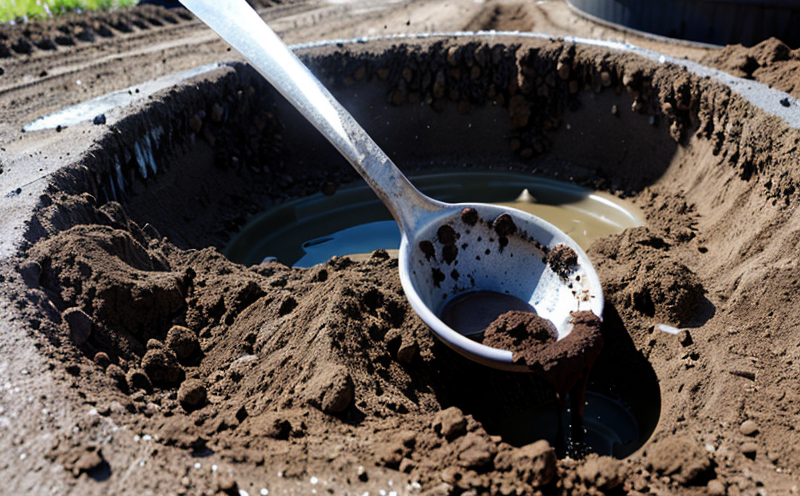Sludge & Biosolids Testing
In the realm of environmental and wastewater treatment, sludge and biosolids play a pivotal role in maintaining ecosystem balance. Sludge is a by-product generated during the biological treatment processes used to clean water. Biosolids, on the other hand, are stabilized organic materials produced from the processing of sewage sludge for use as soil amendments or land application. The importance of proper testing and management cannot be overstated, given their potential impact on public health, environmental sustainability, and regulatory compliance.
The testing of sludge and biosolids involves a series of analytical procedures designed to ensure that these materials meet the highest standards of safety and quality. This includes assessing the concentration of nutrients such as nitrogen and phosphorus, determining heavy metal levels, evaluating microbial content, and verifying pathogen reduction through treatment processes. These tests are crucial for ensuring that the sludge and biosolids do not pose risks when used in land application or released into the environment.
The process typically begins with a thorough sampling of the sludge or biosolids to ensure representativeness. Once collected, the samples undergo rigorous preparation steps tailored to the specific testing requirements. Depending on the intended use, different tests may be required. For instance, if the material is intended for agricultural purposes, it might need to meet stringent nutrient content and pathogen reduction standards as outlined in international guidelines like ISO 18526:2019.
The analytical methods employed are sophisticated and precise, often relying on state-of-the-art equipment such as Inductively Coupled Plasma Mass Spectrometry (ICP-MS) for heavy metal analysis, Flow Cytometry for microbial enumeration, and Enzyme-Linked Immunosorbent Assays (ELISAs) for pathogen detection. The results of these tests are then meticulously analyzed to ensure compliance with local, national, and international regulations.
Given the critical nature of sludge and biosolids testing, it is essential that labs like Eurolab adhere to strict quality control measures and use internationally recognized standards. This ensures that the data generated is reliable and can be trusted by stakeholders including regulators, landowners, and agricultural producers.
Why It Matters
The proper testing of sludge and biosolids is not just a technical necessity; it has far-reaching implications for public health and the environment. Improper management or treatment can lead to contamination of water sources, soil degradation, and exposure to harmful pathogens. This can have severe consequences for both human health and wildlife.
For instance, excessive levels of heavy metals like lead, cadmium, and mercury can accumulate in the environment, posing risks to ecosystems and potentially entering the food chain. Pathogen detection is equally critical as it ensures that any sludge or biosolids intended for land application do not contain harmful organisms capable of causing diseases.
Compliance with regulatory standards is also paramount. Governments around the world have established stringent guidelines to ensure the safe use of sludge and biosolids, including the USEPA's Sludge Treatment Regulations (40 CFR Part 503). Failure to comply can result in significant penalties for non-compliance.
By conducting thorough testing, labs like Eurolab help protect public health, support sustainable land management practices, and ensure that environmental regulations are met. This not only enhances the safety of agricultural products but also contributes to a healthier environment overall.
Eurolab stands out as one of the leading laboratories in sludge and biosolids testing, offering unparalleled expertise and cutting-edge technology. Our team comprises highly qualified scientists with extensive experience in environmental analysis who understand the nuances of this specialized field.
- Accurate and Reliable Results: Leveraging advanced analytical techniques and strict quality control measures, Eurolab ensures that every test result is accurate and reliable.
- Comprehensive Testing Capabilities: We provide a full range of tests required for sludge and biosolids management, including nutrient content analysis, heavy metal detection, microbial enumeration, and pathogen identification.
- International Standards Compliance: Our methods are aligned with international standards such as ISO 18526:2019 and USEPA regulations to ensure that our results meet the highest global benchmarks.
- Expert Consultation: Our team offers expert guidance on best practices for sludge and biosolids management, helping clients navigate complex regulatory landscapes.
At Eurolab, we are committed to providing comprehensive solutions tailored to the unique needs of our clients. Whether you require routine testing or specialized analyses, our dedicated professionals are here to support you every step of the way.
Competitive Advantage and Market Impact
The market for sludge and biosolids testing is competitive but Eurolab has established a strong presence through its commitment to excellence. Our unique selling points include:
- Precision and Reliability: Utilizing the latest technology, our tests deliver precise results that are crucial for regulatory compliance.
- Expertise in Regulatory Compliance: With deep knowledge of international standards such as ISO 18526:2019 and USEPA regulations, we ensure clients stay ahead of changing requirements.
- Client-Centric Approach: Our personalized service ensures that each client receives customized solutions tailored to their specific needs.
- Sustainability Focus: By promoting sustainable land management practices through our testing services, Eurolab contributes positively to environmental conservation efforts.
The demand for reliable sludge and biosolids testing is expected to grow as more industries adopt sustainable practices. Eurolab's leadership in this field positions it as a key player in meeting these growing demands, thereby enhancing its market position and reputation.





